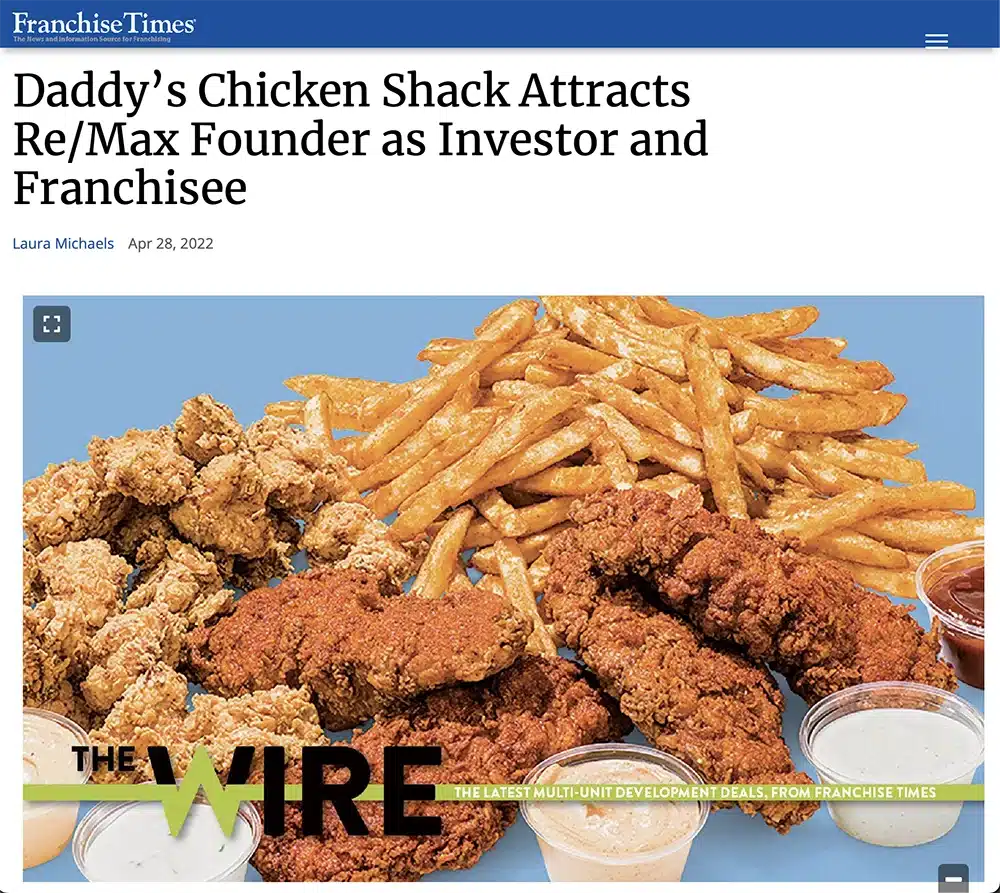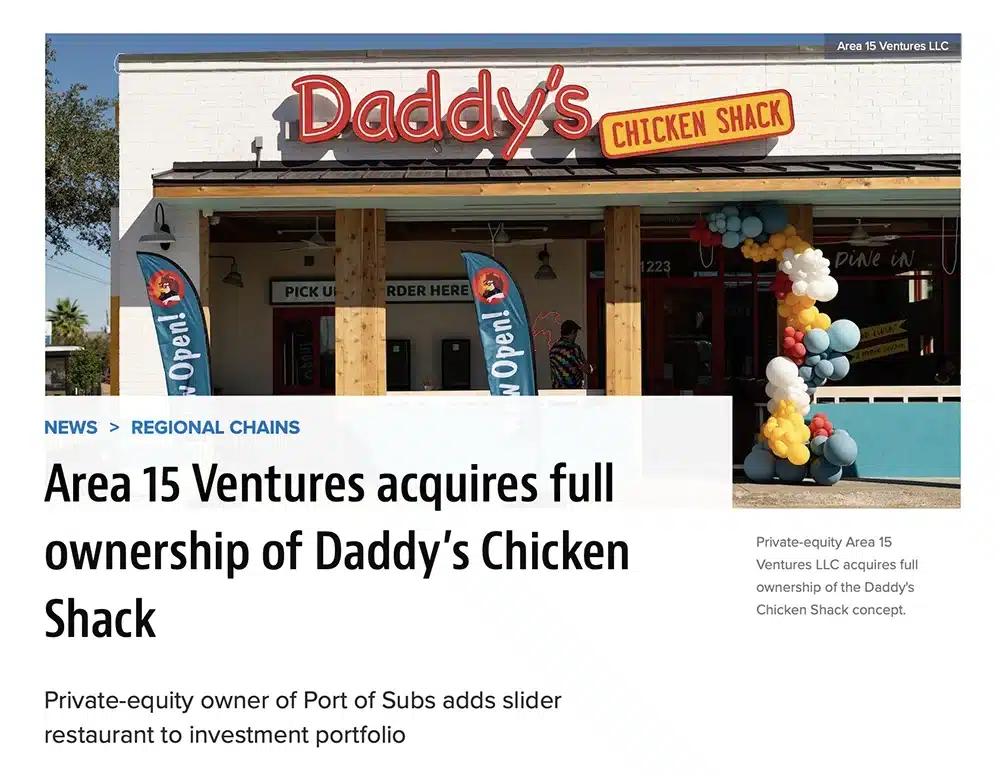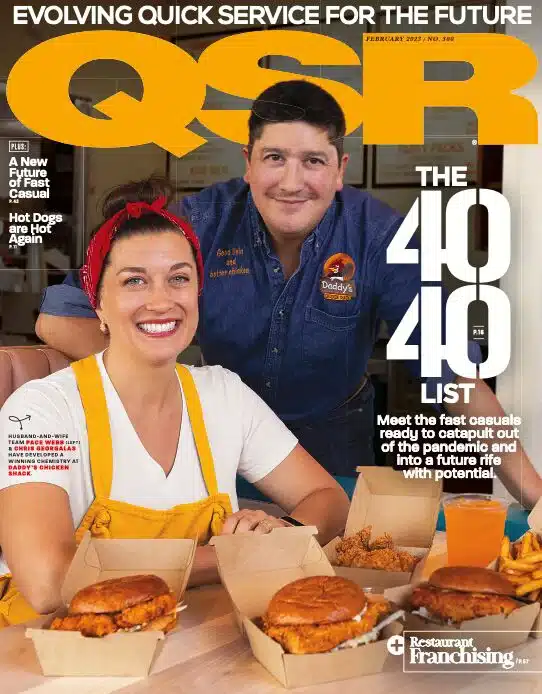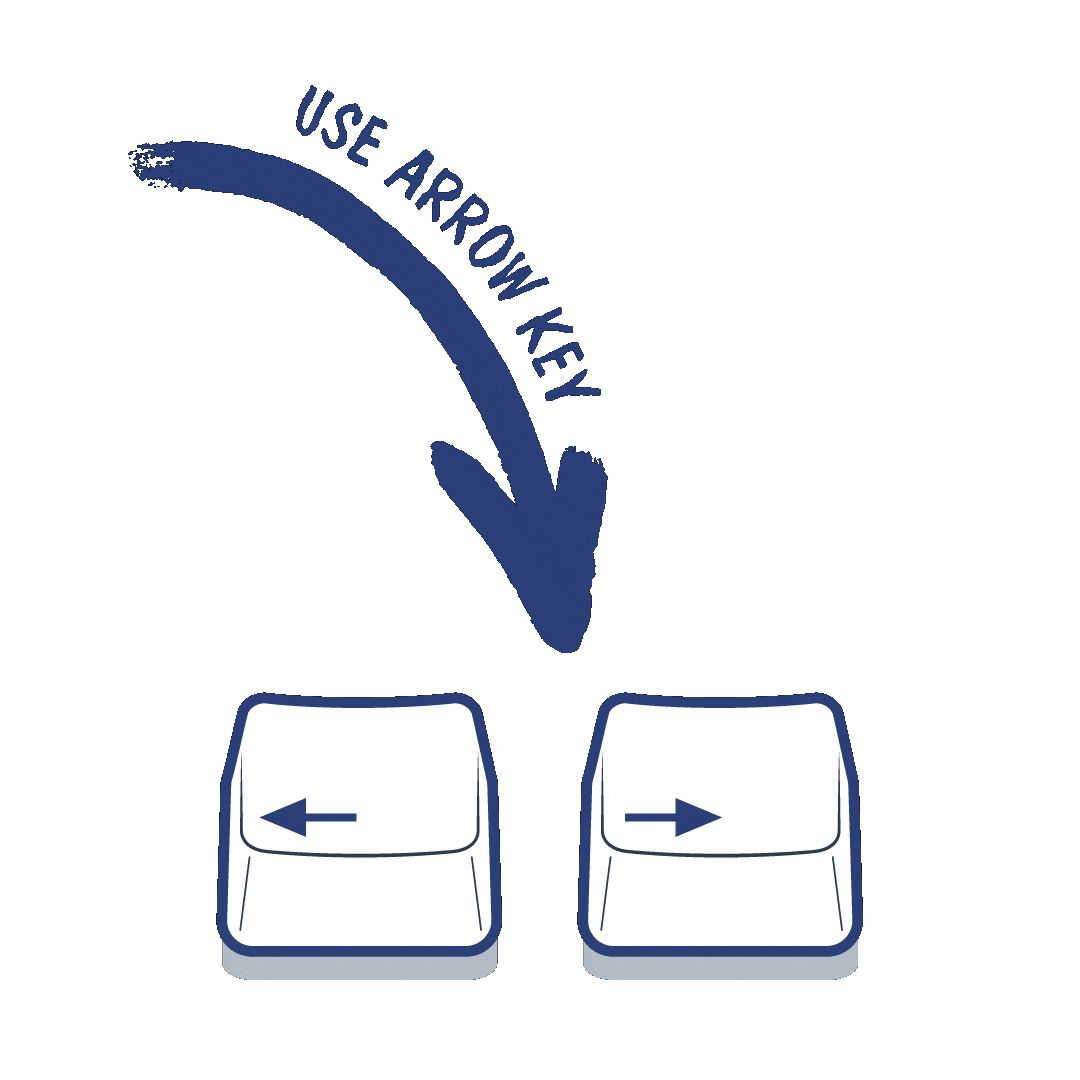
“After building one of the largest and most iconic brands in franchising, I looked for a captivating concept to invest in that had the ability to be nationwide in short order. I fell in love with the concept and I’m looking forward to building another iconic brand.”
Dave Liniger
RE/MAX Co-Founder
CEO Daddy’s Chicken Shack®

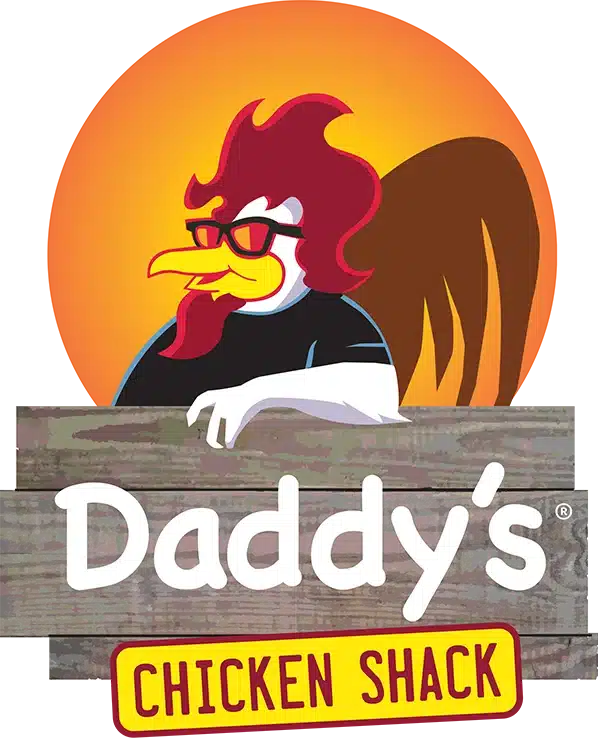
Discover the Technology
We invite you to discover this multi-faceted opportunity and to select any and all presentation topics to review. You’ll find this list at the end of any presentation you select.
Ready to Start a Conversation?
Just select the arrow button on the bottom of any page and answer a couple questions!
Discover the Technology
We invite you to discover this multi-faceted opportunity and to select any and all presentation topics to review. You’ll find this list at the end of any presentation you select.
